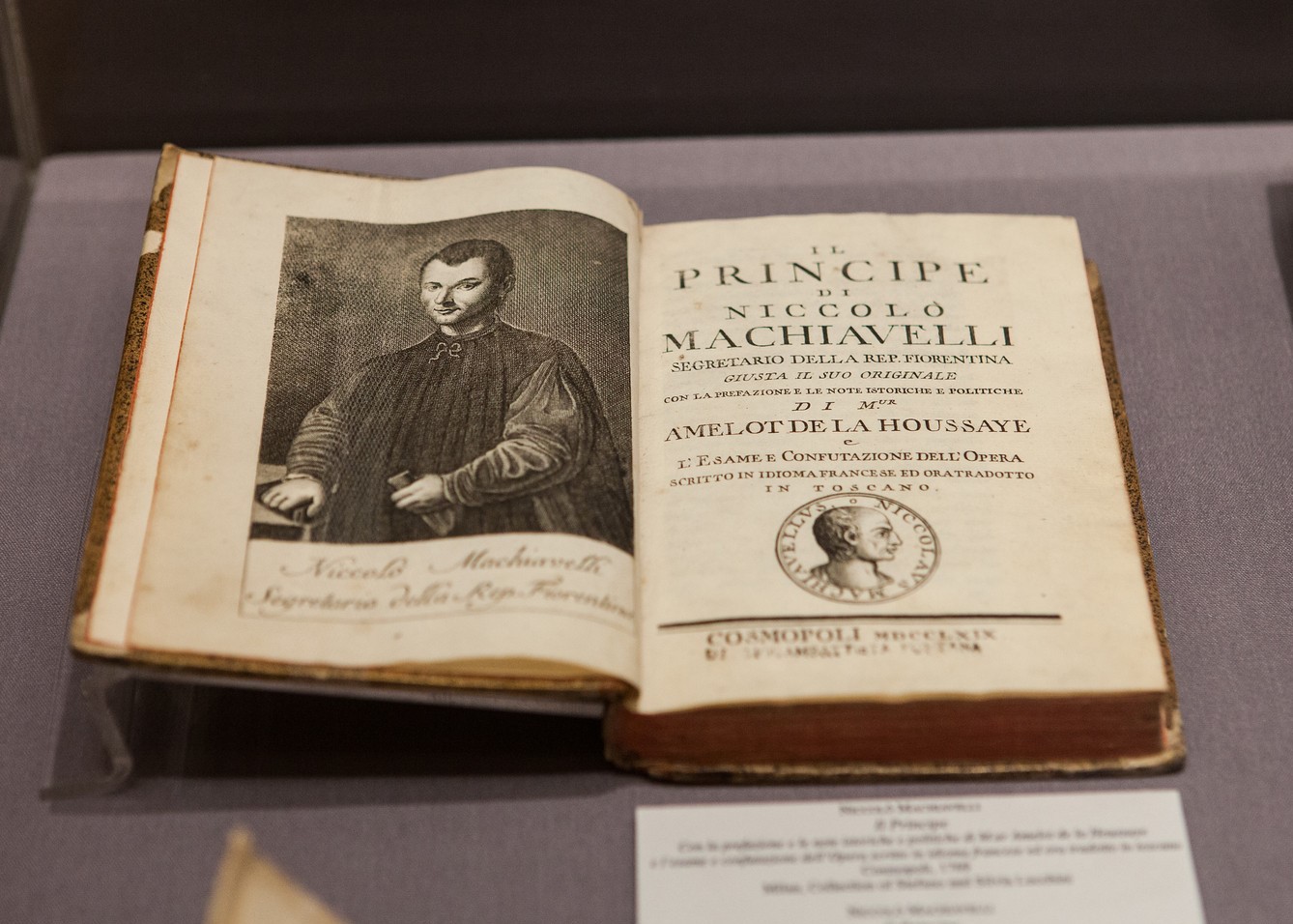
This instalment of the column presents another great classic of the Italian literature, a well-know and in depth studied book that still finds its place in school curricula and can spark interesting conversation. This work is perhaps less consolidated and straightforward in our literary landscape because it has in fact generated criticism and controversial opinions about its content and meaning. However, it remains one of the most important pieces of Italian literature and – whether one agrees with its core message or not – it is one of the most interesting works ever done.
The Prince was published in 1532 and written by Niccolò Machiavelli (1469 – 1527), an Italian Renaissance political philosopher and statesman who served as secretary of the Florentine republic. The Prince is his most famous work which presented him as an atheist and an immoral cynic and that has overall ignited a debate about his figure and nature; was he an innovative modernist or a cynical politician? Or both?
Machiavelli wrote The Prince in 1513 while he was in exile for political reasons, the book is Machiavelli’s advice to the then current ruler of Florence on how to stay in power. Breaking from the previous Western tradition of political philosophy, which focused on issues of justice, the establishment of an ideal state and human happiness, The Prince consists of a direct manual for rulers on how to establish and maintain control of a new states or how to seize power on an existing one. The advice the author provides are not based on ethical or philosophical principles, but Machiavelli deliberately decided to use real-life examples; in fact, he refers to well-known successful and unsuccessful historical and contemporary leaders when he describes the actions a prince should or should not do in order to pursuit his ambitions. As a matter of fact, “throughout The Prince, Machiavelli explicitly aims to give an unsentimental analysis of actual human behavior and the uses of power”.
The famous takeaway of this book – the idea that the end justifies the means – is embodied in the very core of this work, in which what is important and what matter are the results of the actions rather than the action itself. Indeed, to a prince – to reach his goal of conquering power and maintaining it – everything is permitted, even recommended; resorting to murder, to inciting disagreements between citizens, to purchasing temporary loyalties and to betrayal are all acceptable in Machiavelli’s mind as long as they serve the interest of the prince and can help preserving the state, which is here viewed as necessary to guarantee security, peace, and order for the people. Machiavelli “sets the ambitions of the prince and the need of the people for order side by side, seeing the two as complementary”.
Thanks to this work, Machiavelli is considered as the founder of modern political science which considers the actual state of the world instead of how it might be in utopias. The prince is always guided by necessity, and it is precisely this objective that allows to excuse certain actions that can be considered immoral. The author suggests rules and solutions that a prince could implement, however he does not try to propose exact or universal laws of politics.
In the last chapter of The Prince, Machiavelli tackles the political status of Italy at that time calling for the necessity to free the country from barbarians’ occupation – referring to France and Spain – and establish a new prince who would be able to bring order and stability in the country.
In his most famous work, Machiavelli identifies two animals as the symbols of political action – the fox represents shrewdness, and the lion stands for strength. This exemplifies the core concept of the book, that in the political sphere the human being does not put forth the best version of itself; the only thing that matters is successfully conquering the goal and therefore there is absolutely no room for human scruples or any other form of conditioning. Since the prince is operating in an environment full of doubts and calumny, he needs to base his own behaviour on constant calculation of what is best for him and what works better – whether it is loyalty, simulation, or deceit – with a great moral flexibility.
The outreach of The Prince has spanned not only the literary world but also the philosophical and political ones since, throughout history, several leaders such as Oliver Cromwell, Frederick the Great, Louis XIV, Napoleon I, Otto von Bismarck, and John F. Kennedy have read, studied, and debated Machiavelli’s work and his ideas.
Machiavelli’s masterpiece has conquered the United States as well as it has been widely studied, interpreted and re-interpreted – especially during the last century – with attempts to connect its content to U.S. politics and history.
In particular, to celebrate the five hundred years since The Prince was written, an exhibition called “Il Principe di Niccolò Machiavelli e il suo tempo (1513-2013)” was organized in Washington and New York to celebrate what is considered as one of the three most well-known work of Italian literature in the world.
The Prince has undoubtedly gained great success and has been a source of inspiration for further analysis and reasoning as it became “arguably the most famous book on politics ever written, the work that was to give the name Machiavellian to the teaching of worldly success through scheming deceit”.



